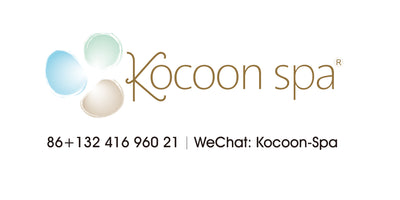4 Tips for Living In China

Article by Richard Saint Cyr MD
Most people who are new to China, no matter which country they are from, have similar health concerns: How do I avoid air pollution? How can I keep my children healthy? Where can I find nutritious and safe foods? You actually have the exact same concerns as local Chinese people!
Tip 1: Lead an Anti-Inflammatory Lifestyle
I find it useful to picture China as a pro-inflammatory country. “Pro-inflammatory” means causing free radical damage to our healthy cells, as well as setting off cascades of unhealthy hormones and enzymes that can slowly lead to many illnesses such as heart disease and cancer. Because we are exposed to these chemicals in our foods and in the air we breathe, it might be helpful to ask yourself, “What can I do to fight off this damage?” Fortunately, you can take a lot of basic steps: don’t smoke; exercise; limit your exposure to air pollution; watch your alcohol intake; and eat anti-inflammatory foods such as fruits and vegetables. You should also avoid our modern world’s unhealthier foods including trans-fats, processed foods and grain-fed red meats.
Tip 2: Air Pollution — Control Your Exposure
Air pollution is a problem in almost every city in China, but it is generally worse in the north including Beijing and Tianjin. Sometimes the Air Quality Index (AQI) is many times higher than World Health Organization (WHO)-recommended levels. Air pollution may be a serious health concern if you or your children have lung or heart conditions. Healthy people may also develop symptoms on severely polluted days. Children are especially at risk for long-term lung damage because their sensitive lungs keep growing until their late teens. But it’s important to realize two things: First, the relative risk of air pollution causing health problems is much lower than the risk of suffering from other lifestyle factors such as lack of exercise, poor nutrition and smoking. Second, you can take steps to avoid the worst of the pollution. Because 90% of our lives are spent indoors, use indoor air purifiers to clean your air at all times, especially in a child’s bedroom. On the worst days, especially when the AQI is over 200, you should consider limiting your outdoor activities. If you or your child must go outside on those bad days, wear an
N95-rated air pollution mask. N95 means the mask blocks 95% of fine particles. By taking these steps, you can dramatically decrease your total exposure to air pollution.
Tip 3: Play with Your Food
Food safety is a major concern all over China, so I recommend sticking to foods, restaurants and markets that you know are safer. Organic food is a good choice because it is more likely to be free of toxic levels of pesticides and chemicals. High prices and availability can be an issue, but the next level of protected foods – called GreenFood (绿色食品) – are often cheaper than organic foods and claim to use fewer chemicals. The big supermarkets – such as Metro, Walmart and Carrefour – have a growing selection of organic foods. Also, their general quality of produce and meats are high due to their supply chains and cold storage. No matter where you get your produce, always clean and rinse it properly, especially leafy greens. In the summer, be especially careful where you buy your meats and produce because dangerous bacteria can grow quickly on uncovered, un-cooled meats. Don’t forget other basics of food safety: try to use glass containers (not plastic) and polyethylene (PE) cling wrap; make sure your ayi knows how to properly clean and prepare foods; and try to drink water from installed filters and not delivered bottles. (Much of the delivered water and containers are counterfeit or unsafe).
Tip 4: Get Fit – Even Outside!
China shares the same #1 killer as the rest of the world: heart disease, heart attacks and strokes. Most heart disease is caused by our modern lifestyles and can be prevented..We all need to focus on the basics of maintaining healthy body weight, eating proper foods, not smoking, and, most importantly, exercising. With exercise, you should aim for at least 150 minutes a week of moderate exercise, or 90 minutes of more energetic exercise. You can also try shorter routines called high-intensity interval training (HIIT) three times a week for 15 minutes each. You should do whatever sport you love. Beijing is filled with gyms and public parks, and there are many hiking and biking clubs. Don’t be afraid to exercise outside! As long as the AQI pollution index is reasonable (under 150), exercising outside is still much healthier than not exercising at all. If the AQI is high, especially over 200, you should wear a properly fitted pollution mask when exercising outdoors.
You can also buy our cleansing products to avoid pollution skin problems.

